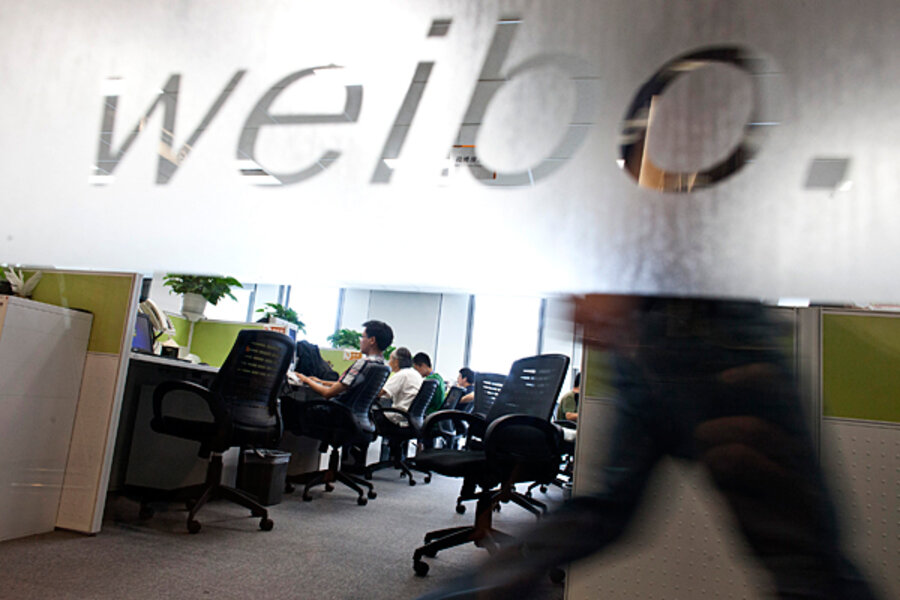Corrupt officials beware: China's Twitter empowers citizen-vigilantes
Loading...
| Beijing
Pity the poor Chinese official.
For years he has been able to get away with almost any kind of behavior, unaccountable to the public and rarely held to account by his superiors.
Suddenly, as two mid-ranking bureaucrats are discovering to their chagrin, he practically cannot even hitch up his shirt cuffs in public, let alone throw his weight around, without the public jumping on his case and possibly getting him fired.
Not because Chinese politics have changed, mind you, but because of Sina Weibo, the Twitter-like social media forum that has trained a critical public eye on people in authority across the land.
Just ask Yang Dacai. As head of Shaanxi Province’s Safety Supervision Bureau, he was called to the scene of a ghastly crash 10 days ago that had killed 36 bus passengers. For some reason, he was smiling inanely in a reporter’s photograph of the scene that went viral on Weibo, and which infuriated internauts.
Within a couple of days, he had been identified, and five photographs of him in different circumstances wearing five different luxury watches had been scoured from the Web and posted on Weibo. Where, demanded indignant citizens smelling corruption, had a civil servant earning $1,500 a month found the money to buy $40,000 worth of wristwatches?
Mr. Yang is currently under investigation by the Shaanxi provincial disciplinary body, which is looking into allegations of bribery.
Col. Fang Daguo, a political commissar with the People’s Liberation Army, is also under investigation, and has been suspended from his job to boot, because of another Internet outcry.
And in a new sign of Weibo’s power, Internet posts have inspired even the government’s official purveyor of propaganda, the Xinhua news agency, to join in the criticism.
A flight attendant on China Southern airlines posted an account last week (illustrated by photographs and retweeted by others more than 30,000 times) of how Fang had hit and gripped her hard enough to leave bruises and tear her dress when she asked him to move his luggage from the aisle before the plane took off for the southern city of Guangzhou.
Cue public outrage, and, unusually, a quick statement from Fang’s employer. Except that the statement said he had done no wrong, suggesting instead that his wife had been involved in a little pushing and shoving.
This flew in the face of eyewitness reports, and was too much even for Xinhua – normally the staunchest defender of officialdom in the land.
“Have you done a comprehensive and objective investigation?” the Xinhua bureau in Guangzhou asked in a Weibo post, challenging the official version of events. “Is what your investigation found really the same as what you published? If not, why not?”
The highest officials in government – President Hu Jintao and Premier Wen Jiabao – have warned repeatedly that corruption poses the gravest threat to Communist Party rule in China, as the gap between rich and poor widens. It has made little difference.
Sometimes the new citizen-vigilantes on the Web claim a scalp: In 2008 an official in the eastern city of Nanjing was featured in an online photo wearing a fancy watch; a public outcry led to an investigation that led to an 11-year jail term for bribery.
But sometimes the old ways still win out. When Shi Junrong, a reporter for the Xi’an Evening News in northeastern China, wrote an article in June wondering about the wickedly expensive cigarettes a county official had been photographed smoking, it wasn’t the official who was suspended – it was Mr. Shi.








